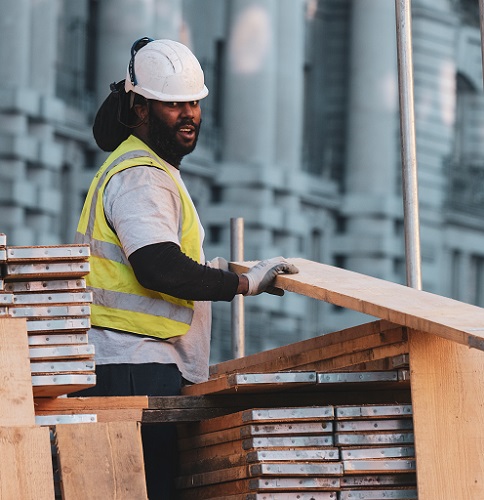Insurance claims are a fact of life in the construction industry. Unfortunately, you may have to file a claim with your insurer at one time or another, but there are ways to prevent that from occurring.
Here’s a look at the four most common contractor and construction insurance claims and how to avoid them:
1. Theft
It’s estimated that about $500 million worth of equipment is stolen from job sites every year. Stolen items have typically been small, such as copper pipes and wiring or power tools. However, thieves have also begun stealing more expensive items such as 3D measurement systems, vehicles, and heavy equipment.
There are a few things you can do to prevent theft:
- Use additional security measures. Lock everything up you can in job site boxes and remove the wheels. Put in climb-resistant fencing, have as few entrances as possible with locked doors or gates, and install security cameras and extra lighting. Also, use hydraulic locks on equipment, and consider hiring a security guard to keep watch.

- Make your mark. It’s always wise to identify what’s yours by labelling everything. That can be done by etching your company name on everything or using microdot identification.
- Keep a thorough inventory. You should keep track of everything you own by conducting a business contents inventory and track the items and equipment you bring to a job site. That includes recording the make and model or serial numbers, purchase dates, photos, and descriptions of each item.
Hold onto receipts. It’s a good idea to hold onto all your receipts in the event of theft. That will make things easier if you need to file an insurance claim.
2. Water Damage
Mistakes can happen during construction or a renovation project. And one of those errors can lead to damage, whether it be water damage because of cutting into a pipe or not paying attention to the weather.
Here’s how you can avoid these claims:
- Map out where the pipes are. There’s nothing worse than cutting or drilling into a pipe by mistake. Try to get the building plans before starting any work.
- Track the weather. Canada is known for its unpredictable temperature changes. One day can feel like summer’s near, and a snowstorm follows the next. Knowing what the forecast is can help you decide whether to put a tarp on the roof or to winterize plumbing.
- Check before using. You should test out the plumbing first to check for any problems before leaving the site. Turning up the next day to find there was a leak isn’t the situation you want to have.
- Anticipate a potential problem. Have a plan in place in case something goes wrong. Ensure you clean up any damage as quickly as possible and have some dehumidifiers or fans on hand to minimize the damage.
3. Injury
Injuries are common in the construction industry. According to the Association of Workers’ Compensation Boards of Canada, 28,111 lost-time claims were filed in the construction industry due to injury or disease in 2019 — the third-highest among all industries in Canada.
To prevent injuries at work, you can do the following:
- Train all employees. The best way to keep your employees safe is to train them. Make them aware of any safety regulations and ensure they’re enforced.
- Restrict third parties from the site. While your client may want to check the progress of the work, restricting third parties who are unfamiliar with a construction site away can keep them safer.
- Keep the site clean. Having a clean site will make it safer. Clean up any wet surfaces or spills and remove any debris from work areas to prevent accidents before they happen.
- Inspect equipment before use. All equipment should be checked thoroughly to ensure it’s in perfect working order. Also, keep the equipment properly maintained as a preventative measure.
4. Construction Delays
It’s rare for a project to be completed on time, especially now. Over the past two years, the industry has faced several issues: lockdowns, COVID-19 outbreaks at job sites, confusion over what’s considered essential or non-essential work, and shortages of building materials due to supply chain issues. And those are on top of the ongoing problems that have plagued the industry.
Here are some things you can do to alleviate potential problems:
- Do a thorough design review. Reviewing the plans before work begins can save you a lot of trouble if a mistake is found later.
- Have an approval process in place. Waiting for something to be approved can cause delays. Ensure that those doing the approval know they have a deadline to meet, and any delays can put the overall project behind schedule.
- Be prepared for inclement weather. Bad weather can grind construction to a halt. You can build in extra time in your project plan to be ready for delays and have water pumps and waterproof gear to get back to work as soon as possible.
- Stock up on material. While there’s an upfront cost to getting the supplies needed for a project, there’s a more considerable cost if you can’t find the materials required to get the job done while the project is underway. Work with existing suppliers and look for additional suppliers to help get you the materials you need.
Essential Construction Safety Tips
Prioritizing safety and adhering to industry best practices year-round is the best way to prevent an accident, injury, or theft, such as:
- Ensuring all workers always wear protective equipment while at a job site
- Only using tools and equipment that are in good condition and designed for the task at hand
- Being aware of wet or icy walking and working surfaces in cold weather
- In the summer, have water stations at the site and mandate cooldown breaks for your crew
- Ensure all tools and equipment are secured when not in use or at the end of a workday
However, despite how cautious and prepared you and your crew are, sometimes the unexpected happens. That’s why it’s critical to have a construction insurance policy to protect your finances and your business’s reputation.
Related Posts
What Is a Deductible in Small Business Insurance? (Definition, Examples & How It Works)
A deductible is the amount your small business pays out of pocket when you file an insurance claim. Understanding how deductibles work can help you lower premiums, avoid surprises, and choose the right coverage.
Why E-Commerce Insurance Matters for Online Sellers in Canada
If you sell products online in Canada, e-commerce insurance – also known as online business insurance – is essential to protect your finances, inventory, and reputation. Here’s what online sellers, dropshippers, and small e-commerce businesses in Canada need to know.
What Happens If Your Small Business Gets Sued in Canada?
Being sued as a small business owner can be financially and emotionally overwhelming. Legal defence costs can quickly climb into the tens of thousands of dollars. This article explains what happens when your business is sued, how business liability insurance can help cover legal fees, and how to reduce your risk of being sued in the first place.


